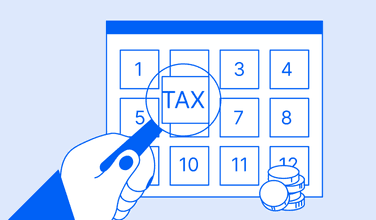- Osome Blog UK
- How To Register a Copyright in the UK
How To Register a Copyright in the UK
- Modified: 17 June 2025
- 7 min read
- Running a Business


Gabi Bellairs-Lombard
Author
Gabi is a content writer who is passionate about creating content that inspires. Her work history lies in writing compelling website copy, now specialising in product marketing copy. Gabi's priority when writing content is ensuring that the words make an impact on the readers. For Osome, she is the voice of our products and features. You'll find her making complex business finance and accounting topics easy to understand for entrepreneurs and small business owners.
Discover our step-by-step process of registering a copyright in the UK. From preparing your work to submitting the application and paying fees, this article provides essential guidance for safeguarding your creative works and asserting your intellectual property rights.
To register a copyright, the owner applies to the copyright office for a registration certificate, securing legal protection of their work.If you've created an original work of authorship in the United Kingdom, registering a copyright can provide valuable legal protection and exclusive rights to your creation. Understanding the process of registering a copyright in the UK is essential to ensure your work is safeguarded and recognised as intellectual property. In this article, we will guide you through the steps involved in registering a copyright in the UK.
Determining Eligibility for Copyright Registration
Before diving into the benefits of copyright registration, it is essential to understand whether your work is eligible for protection. In general, any original work fixed in a tangible form, such as a book, a painting, or a song recording, is eligible for copyright. However, it is essential to note that ideas, titles, names, and facts cannot be copyrighted. It is also worth mentioning that copyright laws vary between countries, so it is crucial to consult the relevant legislation in your jurisdiction.
When determining eligibility for copyright registration, there are a few key points to consider. Firstly, the work must be original, meaning it is not a copy or a reproduction of someone else's work. This ensures that copyright protection is granted to the work's creator rather than to someone who simply duplicates or imitates it.
Furthermore, the work must be fixed in a tangible form. This means the work must exist in a physical or digital medium that can be perceived, reproduced, or communicated. For example, a novel must be written down or typed out, a painting must be on a canvas or a digital file, and a song recording must be saved in a format that can be played back.
It is also worth noting that copyright protection does not extend to ideas, titles, names, or facts. While the expression of an idea may be protected, the underlying idea itself cannot be copyrighted. Similarly, titles and names are generally not eligible for copyright protection, as they are considered too short and lacking in originality. Facts, such as historical events or scientific discoveries, are also not subject to copyright, as they are considered part of the public domain.
When considering copyright registration, it is important to be aware of the differences in copyright laws between countries. While the basic principles of copyright protection are similar in many jurisdictions, there may be variations in the specific requirements and procedures. Therefore, it is advisable to consult the relevant legislation and seek legal advice to ensure compliance with the copyright laws in your jurisdiction.
By understanding the eligibility criteria for copyright registration, you can determine whether your work is eligible for protection and take the necessary steps to secure your rights as a creator. Remember, copyright registration provides important benefits, such as the ability to enforce your rights, claim damages in case of infringement, and establish a public record of ownership. So, if you believe your work meets the eligibility requirements, it is worth considering copyright registration to safeguard your creative endeavours.
Benefits of Registering a Copyright
While copyright protects your work from the moment of creation, registering it provides additional benefits and legal protections. Let's explore some of the key advantages:
- Public Notice: Registering your copyright with an official government authority, such as the UK Intellectual Property Office, allows you to publicly claim ownership of your work. It serves as public notice, informing others that you are the rightful owner.
- Litigation Advantage: Registering your copyright enables you to initiate legal proceedings against anyone who infringes on your rights. Without registration, your options for legal action may be limited.
- Presumption of Validity: Registration creates a legal presumption of the validity of your copyright, making it easier to prove your ownership in court if disputes arise.
- Damages and Statutory Benefits: Registered copyrights provide the opportunity to claim statutory damages and attorney's fees in case of infringement, which can be a significant advantage in recovering damages.
Copyright vs. Registered Copyright vs. Trademark
It is essential to understand the distinction between copyright, registered copyright, trademark, and fairtrade. While copyright protects original works of authorship, the registration process ensures additional rights and legal advantages. On the other hand, trademarks protect brand names, logos, and other distinctive symbols that identify goods or services in the marketplace. On the other hand, fairtrade refers to a social movement that promotes better trading conditions and sustainability for producers in developing countries. Each form of protection, including fairtrade, serves different purposes and might apply to different aspects of your creative work or business.
Preparing Your Work To Register a Copyright
Before submitting your copyright application, it is important to prepare your work adequately. This may involve gathering supporting documents, such as manuscripts, digital files, or design sketches, depending on the nature of your creative work. Take the time to organise and document your work to streamline the registration process and provide evidence of your ownership, should it ever be questioned.
Originality and fixation requirements
Before registering a copyright, ensuring that your work meets the originality and fixation requirements is essential. Originality refers to the work being independently created and not copied from another source. Fixation requirement means that the work should be tangible, written on paper, recorded in audio or video format, or saved in a digital file.
Identifying the type of work for registration
To register a copyright, you must identify the type of work you seek protection for. Copyright can be applied to various creative works, including literary works, musical compositions, dramatic works, artistic creations, and more. Understanding your work's specific category will help you determine the appropriate registration process.
Gathering documentation and materials
Before starting the copyright registration process, it's important to gather the necessary documentation and materials. This may include a copy of your work, such as a manuscript, recording, or digital file, and any supporting documentation that may be required. Gathering these materials in advance will streamline the registration process.
Completing the Copyright Application
Completing the copyright application accurately and thoroughly is crucial for successful registration. When registering a business and completing the application, be sure to provide all required information, such as the title of your work, the names of the authors or creators, and a description of the work itself. A well-prepared and comprehensive application increases the chances of successful registration.
Choosing the right copyright office
When completing the copyright application, choosing the correct copyright office to submit your application is crucial. Different countries have copyright offices, and selecting the appropriate jurisdiction is important for obtaining the desired copyright protection. Research the relevant copyright office based on your location and the type of work you want to register.
Selecting the proper application form
After choosing the copyright office, you need to select the proper application form to complete. The application forms may vary depending on the type of work being registered and the jurisdiction. Ensure that you are using the correct form that corresponds to your specific work to avoid any delays or complications during the registration process.
Providing accurate information in the application
When completing the copyright application, providing accurate and detailed information about your work is essential. This includes identifying information about the author or creator, a concise description of the work, and any relevant dates or publication details. Accuracy and completeness in the application will help ensure a smooth registration process.
Submitting the Copyright Application
After completing the application, it is time to submit it to the appropriate copyright office. Ensure that you follow the guidelines and procedures provided by the office, such as formatting requirements and payment instructions. Double-check your application for any errors or missing information to avoid unnecessary delays or rejection.
Online application submission process
Many copyright offices offer the convenience of online application submission. This process typically involves creating an account on the copyright office's website, filling out the online application form, and uploading the required documentation electronically. Following the guidelines provided by the copyright office, you can submit your application online for a quicker and more efficient registration process.
Physical application submission process
In some cases, copyright applications may need to be submitted physically by mail or in person. This process involves printing out the application form, completing it manually, and sending it along with the required documentation to the designated copyright office address. It is important to carefully follow the instructions provided by the copyright office to ensure a successful submission.
Paying the Copyright Registration Fees
When submitting your copyright application, you must pay the applicable registration fees. The fees can vary depending on the type of work being registered and the filing method. Timely payment of the registration fees is important to ensure the processing of your application and the protection of your creative work.
Understanding the fee structure
When registering a copyright, fees are usually associated with the application process. Understanding the fee structure is vital to ensure you provide the correct payment. The fee structure may vary based on factors such as the type of work, the copyright office, and the registration options chosen. Familiarise yourself with the applicable fees to avoid any payment-related issues.
Payment options and methods
Copyright offices often offer various payment options and methods. These include online payment systems, credit card payments, bank transfers, and money orders. Check the copyright office's guidelines to determine the accepted payment methods and choose the most convenient. When submitting your application, ensure you have the necessary funds or payment details.
The copyright registration process may vary slightly depending on the jurisdiction and specific requirements of the copyright office. It is always advisable to consult the official resources and guidelines provided by the relevant copyright office for accurate and up-to-date information.
Copyright Processing Time and Tracking
The registration process for copyright involves submitting an application and the necessary documents to the appropriate authority, such as the UK Intellectual Property Office. The processing time can vary depending on several factors, including the office's workload and the application's completeness. While waiting for your registration to process, keeping track of your submission and any related correspondence is wise. Staying organised and proactive will help ensure a smooth registration process.
Conclusion
Copyright registration is vital for creators looking to protect their intellectual property and maximise its value. Understanding the benefits of copyright registration, the eligibility requirements, and the registration process itself can empower you as a creator and provide the necessary tools to safeguard your creative works. By taking this proactive step, you can enjoy the peace of mind of knowing your creativity is secure.






